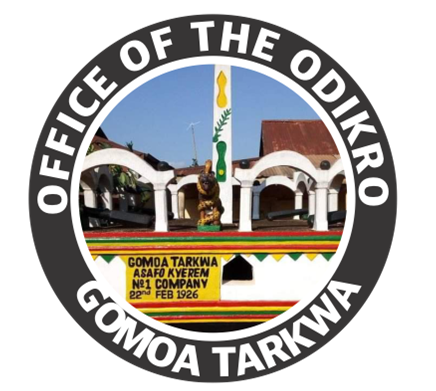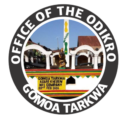The Office of the Odikro in Gomoa Tarkwa Township carries a rich historical and cultural significance. The title “Odikro,” which translates to “ruler of the town,” has been central to the governance and social fabric of the community for centuries. Historically, the Odikro’s role encompassed a broad spectrum of responsibilities, from governance and conflict resolution to cultural preservation and community development.
Historical Origins
The origins of the Odikro’s office can be traced back to the early settlers of Gomoa Tarkwa, who established a hierarchical system to manage communal affairs. The Odikro was chosen based on lineage and leadership qualities, ensuring that the individual was well-versed in the customs and traditions of the people. This governance structure was vital in maintaining order and unity within the township, particularly in times of conflict or external threats.
Role and Responsibilities
The Odikro’s role extended beyond mere governance. As the custodian of tradition, the Odikro was responsible for preserving the cultural heritage of Gomoa Tarkwa. This included overseeing community festivals and ceremonies, which were essential in fostering social cohesion and cultural identity. The Odikro also played a pivotal role in conflict resolution, mediating disputes and ensuring justice within the community. This function was crucial in maintaining peace and harmony, which were foundational to the township’s prosperity.
Evolution and Modern Influence
While the core responsibilities of the Odikro have remained consistent, the office has evolved to accommodate modern influences. Today, the Odikro is involved in community development initiatives, collaborating with local and regional authorities to improve infrastructure, education, and healthcare. Despite these modern adaptations, the Odikro continues to uphold the historical essence of the office, ensuring that traditional values and practices are not lost in the face of modernization.
In summary, the Office of the Odikro in Gomoa Tarkwa Township serves as a bridge between the past and the present, preserving the rich cultural heritage of the community while adapting to contemporary challenges. The Odikro’s influence on local traditions, their role in community festivals and ceremonies, and their involvement in decision-making processes highlight the enduring significance of this esteemed position.
Current Structure and Functions of the Odikro’s Office
The Office of the Odikro in Gomoa Tarkwa Township is structured to effectively manage both traditional and contemporary community affairs. At the helm is the Odikro, who serves as the primary leader and custodian of cultural heritage. Supporting the Odikro is a council of sub-chiefs and advisors, each with specific roles and responsibilities. This council includes senior elders, who provide wisdom and guidance, and specialized advisors focused on areas such as agriculture, health, and education. These advisors are instrumental in bridging the gap between traditional leadership and modern administrative needs.
On a day-to-day basis, the Odikro’s office operates through a well-coordinated network of roles and responsibilities. The Odikro holds regular consultations with sub-chiefs and advisors to discuss and address community issues. Administrative tasks are managed by a dedicated team that ensures smooth communication and implementation of decisions. The office maintains close interaction with local government authorities, facilitating a collaborative approach to governance. This interaction is crucial for aligning traditional leadership with governmental policies and community development initiatives.
Education, health, and economic development are key areas where the Odikro’s office plays a significant role. The office actively participates in promoting educational programs, supporting local schools, and encouraging youth engagement in learning. In the health sector, the Odikro collaborates with healthcare providers to improve services and raise awareness about health issues. Economic development is addressed through initiatives that support local businesses, agricultural projects, and vocational training, thereby fostering a sustainable economy within the township.
Despite its pivotal role, the Odikro’s office faces challenges in balancing traditional responsibilities with the demands of modern administration. The integration of traditional and contemporary governance systems sometimes leads to conflicts, requiring careful negotiation and adaptation. Additionally, resource constraints can hinder the office’s ability to fully implement its initiatives. Nevertheless, the Odikro’s office remains a cornerstone of unity and progress in Gomoa Tarkwa, striving to harmonize cultural heritage with modern development for the betterment of the community.


